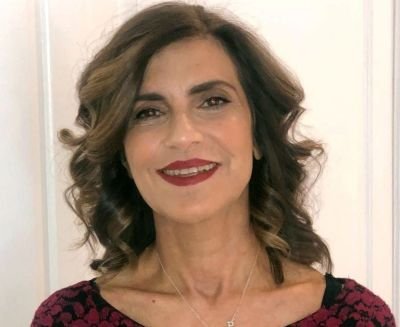
Leslie Shasha is a clinical psychologist practicing in New York. Her work focuses on couples therapy, with a specialization in the dynamics of multicultural relationships. Her therapeutic approach integrates Attachment Theory and Emotionally Focused Therapy (EFT), disciplines she has been applying for over eighteen years.
Born into a bicultural context and holding both Argentine and U.S. citizenship, she began her academic training at Tarbut School in Olivos, Buenos Aires. She later earned a bachelor’s degree in psychology from Wesleyan University and a doctorate in clinical psychology from the Derner Institute at Adelphi University. This transcultural background has deeply influenced her commitment to addressing the challenges faced by couples from diverse origins. She maintains a private practice in Brooklyn Heights.
In addition, Leslie Shasha is involved with the American Foundation for Suicide Prevention and the Jed Foundation, with a particular focus on family bonds in traumatic contexts associated with suicide. She supports stigma reduction and prevention efforts through her participation in seminars, maintaining a strong connection to academic and university settings. Her psychotherapeutic approach blends research and clinical practice, aiming to positively impact mental well-being at a societal level.
Theoretical Foundations and Methodology
Leslie Shasha’s clinical practice is grounded in Attachment Theory and Emotionally Focused Therapy (EFT). EFT, an empirically validated intervention model, is her main tool for addressing interaction patterns and attachment needs, with the goal of facilitating relational transformation. The influence of Sue Johnson, co-creator of EFT, is evident in her methodological development.
Shasha’s professional practice is supported by ongoing supervision. She collaborates with leading figures such as Esther Perel, a renowned expert in relationships, intimacy, and cultural dynamics, and Zoia Fraser, a reference in advanced EFT training and supervision. These interactions enable her to analyze complex cases, stay up to date with therapeutic developments, and engage with emerging schools of thought. She also presents clinical cases using audiovisual materials for detailed supervision.
Professional Development, Influences, and Clinical Practice
Her training includes work at the Ackerman Institute for the Family in New York, where she studied systemic and relational approaches. She also acknowledges the influence of Salvador Minuchin, pioneer of structural family therapy, whose work shifted the therapeutic focus from the individual to the family system and its dysfunctional patterns. These contributions have shaped Shasha’s understanding of relational dynamics and family system organization as key components in understanding trauma—principles that continue to guide her current practice.
For Leslie Shasha, the essence of therapeutic work lies in addressing relational communication. She affirms, “What heals is the [therapeutic] relationship… it doesn’t matter if you’re Freudian, Jungian… the healing element is the connection with the therapist, which enables a reflection of the couple that wants to heal and start weaving together insights to transform the present.”
Although her experience includes work with families, her current practice is almost exclusively dedicated to couples therapy, motivated by the results she has observed. Her perspective is grounded in years of study and a deep conviction that relational bonds are central to both individual and collective well-being. She works to resolve dysfunctional family patterns expressed through the individual. About her vocation, she states: “My vocation stems from the incredible changes I witness in couples when they commit to the process, engage in joint work with each other and the therapist, and manage to break through negative behavior cycles rooted in emotional wounds or other imprints.”
In her day-to-day practice, she prioritizes an interactional approach over psychoanalytic models, focusing on identifying patterns and negative cycles within relationships.
Regarding her clinical style, Leslie Shasha notes: “I keep an open mind, I’m flexible, and I know how to listen. I like to take all theories into account and apply them to each individual. I don’t believe in formulas—every person is unique and deserves a unique understanding. I also like to develop an action plan that I discuss with my patient at the beginning of treatment. Patients have told me they gained a clearer understanding of their dynamics and developed a deeper sense of self after our work together.” Her clinical interests include intimacy issues, parenting, blended families, and family therapy. She is an advanced EFT therapist for couples. Her previous work experience includes Columbia University’s Head Start program, and her training also encompasses Gestalt Therapy and the Minuchin Center for the Family.
Intercultural Specialization and Therapeutic Modalities
A defining aspect of her New York-based practice is her specialization in working with couples from different cultural backgrounds. “As an immigrant from Argentina myself, I bring an additional layer of understanding to the process and its impact on individuals and families. I also have experience in parenting issues, having led parenting groups in the past,” she explains. Her lived experience informs her insights into these processes. She offers remote sessions via digital platforms when needed.
Leslie Shasha’s work is aimed at helping individuals, couples, and families build the tools they need to navigate their relationship dynamics, foster meaningful connections, and achieve stable, lasting well-being.
